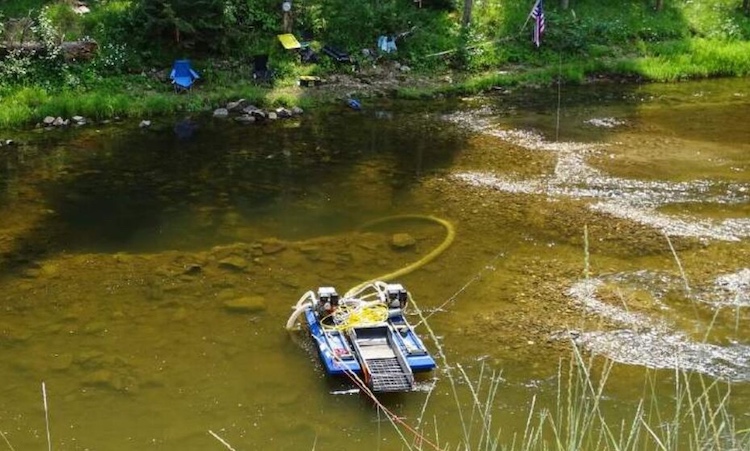forum
library
tutorial
contact

Ninth Circuit Upholds Clean Water Act
Precedent in Idaho Mining Case
by Mateusz Perkowski
Capital Press, November 28, 2023
|
the film forum library tutorial contact |

|
Ninth Circuit Upholds Clean Water Act
by Mateusz Perkowski
|
 A federal appeals court has affirmed that un-permitted suction dredge mining violates the Clean Water Act despite changes in the U.S. Supreme Court's interpretation of that law.
A federal appeals court has affirmed that un-permitted suction dredge mining violates the Clean Water Act despite changes in the U.S. Supreme Court's interpretation of that law.
However, attorneys for a gold miner who was fined $150,000 for running afoul of the law in Idaho plan to ask a broader panel of judges from the 9th U.S. Circuit Court of Appeals to reconsider the decision.
Outdated precedent
The Pacific Legal Foundation, a property rights legal nonprofit representing gold miner Shannon Poe, maintains the ruling hinges on a 33-year-old legal precedent that can't be reconciled with more recent case law.
"We do not believe the court's opinion grappled with many of our legal arguments and instead brushed them aside," said Frank Garrison, an attorney with the nonprofit.
Possible ag impact
Though the ruling pertains to mining, the nonprofit believes it has implications for agricultural activities, such as plowing, in wetlands regulated under the Clean Water Act.
The statute does contain exemptions for farm practices but they're often narrowly construed, potentially preventing growers from switching among crop types, according to the nonprofit.
For example, the 9th Circuit determined the conversion of a pasture to orchards and vineyards in California violated the Clean Water Act because it involved "deep ripping" in wetlands.
The nonprofit's lawyers disagree with that interpretation of the law, arguing that shifting materials within a waterway or wetland isn't the same as adding pollutants.
In the Idaho mining case, the nonprofit sought to overturn a 9th Circuit legal precedent from 1990 that treats stirred-up stream bed sediments as pollutants.
The nonprofit argued the decision has since been overruled by the U.S. Supreme Court in cases that originated in Florida and California.
In those decisions, the nation's highest court decided that transferring polluted water through a pumping station or manmade channel doesn't count as discharging pollutants.
Arguments rejected
However, the 9th Circuit has now rejected those arguments because Poe, the suction dredge miner, actually excavated layers of gravel, rock, sand and silt within Idaho's South Fork Clearwater River.
"These materials were not already suspended in the water; they were previously deposited in the riverbed," the ruling said. "Poe's dredging was therefore not simple water transfer."
The 9th Circuit also rejected the argument that courts shouldn't defer to an administrative agency's interpretation of a statute when criminal and civil penalties are involved, among other claims.
Earlier this year, the 4th U.S. Circuit Court of Appeals ruled that sediment stirred up by fishing nets isn't considered pollution, which was cited by the nonprofit but not addressed by the 9th Circuit.
The appellate ruling could create a "circuit split" of the type that's more likely to be reviewed by the Supreme Court, but the nonprofit must first ask the 9th Circuit for an "en banc" reconsideration of its ruling.
learn more on topics covered in the film
see the video
read the script
learn the songs
discussion forum
